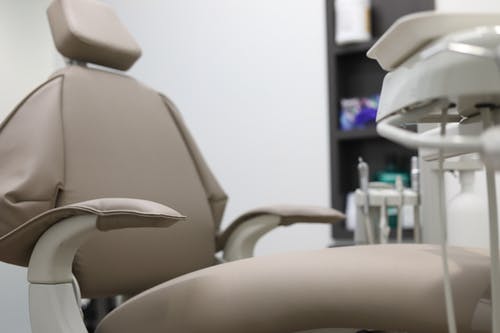We all want to remain active and healthy, but sometimes, our bodies send us signals that it’s time to seek some expert help. When you’re dealing with bones, joints, muscles, or tendons that are complaining more than usual after activity, consider an appointment with an orthopedic specialist.
1. Joint or Muscle Pain
Persistent or recurrent joint or muscle pain that lasts beyond a few days, especially if it interferes with daily activities or worsens with movement, may warrant evaluation by an orthopedic specialist. Whether it’s knee pain, shoulder discomfort, or backache, certified orthopedic specialists can assess the underlying cause and recommend appropriate treatment options.
2. Chronic Pain
Chronic pain that worsens with activity or persists despite conservative measures such as rest, over-the-counter pain medication, or physical therapy should prompt consideration of a consultation with an orthopedic specialist. Chronic pain can significantly impact the quality of life. It may require specialized expertise for effective management.
3. Decreased Range of Motion
Limited range of motion in a joint, stiffness, or difficulty moving a body part as freely as before may indicate an underlying musculoskeletal issue that requires attention. An orthopedic specialist can perform a thorough examination, including diagnostic imaging if necessary, to identify the cause of a decreased range of motion and develop a tailored treatment plan.
Arthroscopic surgery has revolutionized how we approach certain orthopedic procedures. This minimally invasive technique allows for quicker recovery times and less post-operative discomfort. For those who require surgical intervention, understanding arthroscopic surgery, Lafayette might be the key to a quicker return to normal activities.
4. Instability
Feeling unstable or unsteady while standing, walking, or engaging in physical activity could be indicative of ligamentous laxity, joint instability, or neuromuscular dysfunction. Orthopedic specialists are trained to evaluate and address issues related to joint stability, proprioception, and balance to improve mobility and prevent falls or injuries.
5. Persistent Soft Tissue Injury
Soft tissue injuries such as sprains, strains, or tendonitis that have not improved with home treatment, rest, ice, compression, and elevation may require specialized care from an orthopedic specialist. Advanced treatment modalities such as corticosteroid injections, regenerative medicine techniques, or minimally invasive procedures may be indicated for persistent soft tissue injuries.
6. Persistent Swelling
Swelling around a joint or in a specific area of the body that persists despite rest, elevation, and anti-inflammatory measures may indicate an underlying orthopedic issue. Orthopedic specialists can assess the cause of swelling, whether it’s due to an injury, inflammation, or other factors, and recommend appropriate treatment.
7. Difficulty Performing Daily Activities
Suppose musculoskeletal pain or dysfunction is interfering with your ability to perform daily activities such as walking, climbing stairs, dressing, or participating in recreational activities. In that case, it’s essential to seek evaluation from an orthopedic specialist. They can assess your functional limitations, identify the underlying cause, and develop a personalized treatment plan to improve function and quality of life.
8. History of Trauma or Injury
If you have a history of traumatic injury, such as a fracture, dislocation, or significant musculoskeletal trauma, it’s advisable to consult an orthopedic specialist for evaluation and management. Even if the injury occurred in the past and has seemingly healed, residual issues such as chronic pain, instability, or functional limitations may require specialized care from an orthopedic specialist.
Sports enthusiasts, athletes, and weekend warriors alike may find themselves in need of specialized care after an injury. That’s where sports medicine physicians step in. These professionals are adept at handling sports-related injuries and work towards your speedy and safe return to the playing field.
How to Find an Orthopedic Specialist?
Finding the right orthopedic specialist involves several steps to ensure you receive the best possible care for your specific needs:
-
Ask for Recommendations: Start by asking your primary care physician for a referral. Based on your medical history and the nature of your condition, they can recommend orthopedic specialists. You can also ask friends, family members, or colleagues for recommendations if they’ve had positive experiences with orthopedic specialists.
-
Check Credentials and Experience: Research the credentials and experience of orthopedic specialists in your area. Look for board-certified orthopedic surgeons who are experts in treating your specific condition. Medical organizations or health insurance providers often have directories of qualified orthopedic specialists on their websites.
-
Read Reviews: Read online reviews and patient testimonials to gain insights into the experiences of other patients with orthopedic specialists. While reviews should not be the sole factor in your decision, they can provide valuable information about a specialist’s communication style, bedside manner, and overall quality of care.
-
Consider Specializations: Orthopedic specialists may specialize in different areas, such as sports medicine, joint replacement, spine surgery, or hand surgery. Choose a specialist whose specialization aligns with your specific condition or injury for optimal treatment outcomes.
-
Evaluate Accessibility and Convenience: Consider the location, office hours, and accessibility of the orthopedic specialist’s practice. Choose a location that is convenient for you and offers flexible appointment scheduling to accommodate your needs.
-
Verify Insurance Coverage: Check whether the orthopedic specialist accepts your health insurance plan to avoid unexpected out-of-pocket expenses. You can contact your insurance provider or the specialist’s office directly to verify coverage and inquire about any potential costs.
-
Schedule Consultations: Once you’ve identified potential orthopedic specialists, schedule consultations to meet with them in person. Use this opportunity to discuss your condition, ask questions about treatment options, and assess your comfort level with the specialist.
-
Trust Your Instincts: Ultimately, trust your instincts when choosing an orthopedic specialist. Select a specialist who listens to your concerns, explains treatment options clearly, and makes you feel comfortable and confident in their care.
Final Thoughts
If you find yourself nodding along with any of the symptoms discussed, or if you’re eager to improve your athletic performance with the help of sports medicine physicians, consider reaching out to a specialist. Orthopedic health is not a luxury; it’s a crucial component of maintaining an active, fulfilling life. Remember, you don’t have to live with pain or discomfort—there are solutions, and an orthopedic specialist can help you find them.





